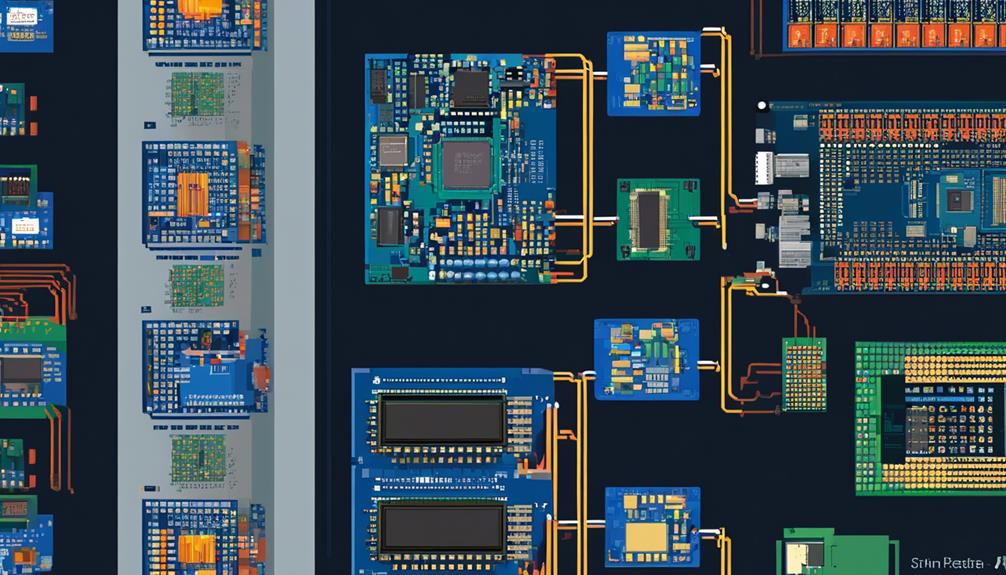In today's interconnected and data-driven world, ensuring the security and integrity of sensitive information is of paramount importance. Hardware Security Modules (HSMs) play a crucial role in safeguarding cryptographic operations and protecting critical assets from unauthorized access and tampering.
These robust and versatile devices securely generate, store, and manage cryptographic keys, reducing the risk of key compromise and ensuring confidentiality and data integrity. With their high levels of physical and logical security, HSMs offer a reliable solution for compliance with industry regulations and standards, making them indispensable in a wide range of applications and environments.
But what exactly are HSMs, and how do they work? In this discussion, we will delve into the definition, function, types, key features, and benefits of HSMs, explore their use cases and applications, discuss integration and compatibility considerations, and touch upon the security certifications and standards that validate their effectiveness.
Moreover, we will explore the future trends and developments in the field of HSMs, promising an exciting journey into the world of hardware-based cryptographic protection.
Key Takeaways
- Hardware Security Modules (HSMs) are essential for managing and safeguarding digital keys, providing encryption and decryption functions, and creating a trusted environment for cryptographic operations.
- HSMs offer enhanced data protection, ensuring the confidentiality, integrity, and authenticity of sensitive data and transactions.
- Secure key management is a critical aspect of HSMs, as it ensures the confidentiality, integrity, and availability of cryptographic operations by securely storing and handling keys and implementing access management controls.
- HSMs come in various types and security levels, with Level 3 HSMs providing the highest level of security, protecting cryptographic keys and data.
Definition and Function

A Hardware Security Module (HSM) is a specialized device that manages and safeguards digital keys, providing encryption and decryption functions for strong authentication and digital signatures. HSMs play a crucial role in securing sensitive data by protecting cryptographic keys used for encryption. These modules are designed to create a trusted environment for cryptographic operations.
HSMs are equipped with hardware and software components that enable them to perform a wide range of functions. They are commonly used in industries such as finance, healthcare, and government, where the protection of sensitive data is of utmost importance.
One of the main functions of HSMs is centralized key management. They securely generate, store, and distribute encryption keys used for various purposes, such as securing communications and protecting stored data. By centralizing key management, HSMs ensure that cryptographic keys are properly protected and accessible only to authorized individuals or systems.
HSMs also support the execution of specially developed modules, allowing for the implementation of advanced cryptographic operations. These modules can include functions related to asymmetric key operations, public key infrastructure, and transparent data encryption keys.
Moreover, HSMs comply with industry standards, such as the Payment Card Industry Security Standards, ensuring that they meet the rigorous security requirements of the card payment system. They provide access management resources and insights into the crypto key lifecycle, enabling organizations to effectively manage their cryptographic assets.
Importance in Cryptographic Operations
Hardware Security Modules (HSMs) play a crucial role in cryptographic operations by providing enhanced data protection and secure key management. These modules excel at securing cryptographic keys and act as trust anchors for protecting cryptographic infrastructure.
Enhanced Data Protection
Enhanced Data Protection is a critical component in cryptographic operations, ensuring the confidentiality, integrity, and authenticity of sensitive data and transactions. This feature is provided by Hardware Security Modules (HSMs), which are specialized devices designed to securely store and manage cryptographic keys. HSMs offer robust protection against unauthorized access and tampering of cryptographic keys. They play a vital role in protecting digital identities, applications, and critical infrastructure. To illustrate the importance of Enhanced Data Protection in HSMs, consider the following table:
| Feature | Benefits |
|---|---|
| Thales Data Threat Protection | Ensures secure key storage and management |
| PCI DSS Compliance | Meets industry security standards for protecting cardholder data |
| Trusted Platform Modules (TPMs) | Provides secure cryptoprocessor chips for enhanced security |
| Elliptic Curve Cryptography (ECC) | Enables strong encryption with shorter key lengths |
| Cloud HSM | Offers secure key management and storage in the cloud |
Secure Key Management
Secure key management is a critical factor in ensuring the confidentiality, integrity, and availability of cryptographic operations. It builds upon the foundation of enhanced data protection provided by Hardware Security Modules (HSMs).
Proper key management is essential for protecting cryptographic keys throughout their lifecycle, from generation to destruction. This involves securely storing and handling keys, as well as implementing access management controls to prevent unauthorized access or misuse.
Secure key management plays a vital role in maintaining compliance with industry regulations and standards, especially in cloud environments where data protection is of utmost importance.
Organizations rely on secure key management to maintain the trust and security of their cryptographic infrastructure. It enables secure encryption and decryption of sensitive data.
Types of Hardware Security Modules

When discussing the types of Hardware Security Modules (HSMs), it is important to consider their features, applications, and security levels.
HSMs come with various features such as encryption algorithms like CAPI, PKCS#11, and CNG. These algorithms enable HSMs to securely store and manage cryptographic keys, perform encryption and decryption operations, and provide secure authentication mechanisms.
HSMs are used in different applications, including crypto wallets, PKI (Public Key Infrastructure), and securing sensitive data. In crypto wallets, HSMs provide a secure environment for storing private keys and performing cryptographic operations for digital currencies. In PKI, HSMs play a vital role in key generation, key storage, and certificate signing. For securing sensitive data, HSMs can be used to encrypt and decrypt data, ensuring its confidentiality and integrity.
Additionally, HSMs can provide different security levels based on their intended use. General purpose HSMs are designed for basic data protection and are suitable for a wide range of applications. Payment HSMs, on the other hand, are specifically designed to secure credit and payment card information during financial transactions. These HSMs comply with industry standards such as the Payment Card Industry Data Security Standard (PCI DSS) and provide the highest level of security for payment-related processes.
Understanding these aspects is crucial for selecting the appropriate HSM for specific security needs.
HSM Features
There are different types of Hardware Security Modules (HSMs) available, each designed to cater to specific security needs.
General purpose HSMs are commonly used with crypto wallets, PKI, and for securing basic sensitive data. They utilize common encryption algorithms like CAPI, PKCS#11, and CNG.
Payment HSMs, on the other hand, play a significant role in protecting credit and payment card information, ensuring compliance with PCI DSS. These HSMs are specifically designed to protect sensitive information during financial transactions.
Both general purpose and payment HSMs support encryption and decryption functions, along with cryptographic keys management. They also provide the latest data protection and access management, in accordance with internationally recognized standards.
Additionally, some HSMs are designed to support elliptic curve cryptography, providing enhanced security for sensitive data.
HSM Applications
Hardware Security Modules (HSMs) are specialized devices that cater to specific security needs, offering robust protection for sensitive information. These HSM systems are used for various applications, such as securing crypto wallets, PKI, and basic sensitive data.
General purpose HSMs are commonly used for encrypting and decrypting data, protecting cryptographic keys, and performing other cryptographic operations. Payment HSMs, on the other hand, are specifically designed to protect credit and payment card information, ensuring compliance with the Payment Card Industry Data Security Standard (PCI DSS).
HSMs also support SSL Acceleration, enabling faster processing of SSL/TLS cryptographic operations. Additionally, HSMs can support elliptic curve cryptography (ECC), a powerful encryption algorithm that provides strong security with shorter key lengths.
These devices comply with the Common Criteria, ensuring their security and quality. Furthermore, HSMs provide secure key storage, ensuring the confidentiality and integrity of cryptographic keys.
HSM Security Levels
After discussing the various applications of Hardware Security Modules (HSMs), it is essential to understand the different security levels offered by these specialized devices.
HSMs come in different security levels, including Level 1, Level 2, and Level 3.
- Level 1 HSMs offer basic security without any physical security mechanisms. They are suitable for applications that require minimal security measures.
- Level 2 HSMs have physical security mechanisms to detect and respond to tampering attempts. These devices provide an additional layer of protection for cryptographic keys and sensitive data.
- Level 3 HSMs provide the highest level of security with active responses to tampering and environmental attacks. These HSMs are commonly used for highly sensitive and critical applications such as financial transactions and cryptographic key management.
Understanding the security levels of HSMs is crucial for organizations to ensure the appropriate level of security for their data access, application security, and secure key management, whether in a data center or a cloud provider environment.
Key Features and Benefits

With a hardened, tamper-resistant design and a dedicated crypto processor, Hardware Security Modules (HSMs) are utilized by security-conscious organizations to securely manage, process, and store cryptographic keys throughout their lifecycle. HSMs serve as trust anchors for protecting cryptographic infrastructure and play a crucial role in ensuring the security of an organization's sensitive data.
One of the key features of an HSM is its ability to provide significant CPU offload. By offloading cryptographic operations to the dedicated crypto processor within the HSM, organizations can free up their main servers and reduce the risk of exposing cryptographic keys. This not only improves the overall performance of the system but also enhances the level of security.
HSMs are designed to meet the stringent security requirements of various industries and regulatory standards. For instance, HSMs are often required to comply with the Federal Information Processing Standards (FIPS) 140 security level. Compliance with these standards ensures that the HSM meets the necessary security requirements, providing organizations with peace of mind.
The functions of an HSM go beyond just managing cryptographic keys. HSMs can also perform encryption and decryption operations, generate random numbers, and enforce access control policies. Additionally, HSMs can securely store sensitive information such as digital certificates and other cryptographic objects.
Use Cases and Applications
To address the growing need for secure cryptographic key generation and management, organizations across various industries are leveraging Hardware Security Modules (HSMs) in a range of use cases and applications. HSMs can be employed in any application that uses digital keys, providing secure cryptographic key generation and storage, including master keys.
Let's explore some of the specific use cases and applications where HSMs are being utilized:
- Key and Secrets Management:
- HSMs are used to securely store and manage cryptographic keys used for encryption, decryption, and authentication.
- They provide a secure environment for generating, storing, and distributing cryptographic keys, ensuring their confidentiality, integrity, and availability.
- Encryption Key Management:
- HSMs support symmetric and asymmetric (public-key) cryptography, making them ideal for managing encryption keys.
- They can generate, store, and protect encryption keys used to secure sensitive data in transit or at rest.
- HSMs enable organizations to meet compliance requirements by securely managing encryption keys throughout their lifecycle.
In addition to the above use cases, HSMs are also employed in centralized key management systems, where they act as a secure repository for cryptographic keys used in various applications. HSMs can offload cryptographic operations from the CPU to the HSM, improving performance and enhancing security. They are capable of performing several large integer multiplications and verifying digital signatures quickly and securely.
HSMs are commonly used in industries such as finance, healthcare, government, and cloud services. They play a vital role in securing sensitive data, protecting against unauthorized access, ensuring the integrity of business logic, and facilitating secure data exchange. HSMs are also utilized in code signing, where they securely store and manage private keys used to sign software and verify its authenticity.
Integration and Compatibility

Integration and compatibility are crucial aspects to consider when implementing Hardware Security Modules (HSMs) in various applications and systems. HSMs support a wide range of applications and provide encryption, decryption, authentication, and digital signing services. These modules are designed to be compatible with different technology partners and can be seamlessly integrated into various systems.
To ensure successful integration, specialized knowledge and expertise may be required. HSMs are used in applications that employ digital keys and provide secure cryptographic key generation and storage. They are commonly used by certification authorities and registration authorities in Public Key Infrastructure (PKI) environments, where logical and physical high-level protection is necessary.
HSMs are compatible with different operating systems, making them versatile and adaptable to different environments. They are designed to work with various cryptographic algorithms, allowing organizations to choose the most suitable algorithms for their specific needs. Additionally, HSMs can interface with smart cards, enabling secure storage and management of cryptographic material.
One important aspect of HSM integration is their tamper-responsive nature. HSMs are designed to detect physical tampering attempts and respond by securely deleting sensitive cryptographic keys and material. This feature ensures the integrity and security of the system.
Furthermore, HSMs offer extensive logging and alerting capabilities. They can generate detailed logs of all cryptographic operations and security events, providing valuable information for auditing and monitoring purposes. These logs can also be used for forensic analysis in case of security incidents.
Security Certifications and Standards
HSMs undergo rigorous certification processes according to internationally recognized standards such as Common Criteria or FIPS 140, ensuring their adherence to strict security requirements. These certifications validate that HSMs meet the highest level of security for cryptographic keys and provide stronger encryption for sensitive data.
Here are some key points about security certifications and standards for HSMs:
- FIPS 140 certification: Most HSMs have Level 3 certification in FIPS 140 security. This certification ensures that the HSMs meet the security requirements defined by the National Institute of Standards and Technology (NIST) for cryptographic modules. HSMs with FIPS 140 certification offer secure key generation and storage, protecting cryptographic keys from unauthorized access.
- Common Criteria certification: Most HSMs have EAL4+ certification in the Common Criteria system. This certification verifies that the HSMs have been evaluated against strict security requirements and have undergone extensive testing. HSMs with Common Criteria certification provide assurance that they have been designed and implemented with robust security measures.
In addition to FIPS 140 and Common Criteria certifications, HSMs used in financial payments applications are validated against the HSM requirements defined by the Payment Card Industry Security Standards Council. This ensures that HSMs used in payment processing systems meet the industry standards for secure transaction processing.
To further enhance the security of HSMs, certification authorities and registration authorities play a crucial role. Certification authorities validate the security features and functionality of HSMs, while registration authorities manage the registration process for cryptographic keys. This ensures that only authorized entities have access to the keys.
Furthermore, HSMs are designed to detect signs of tampering. They have physical security measures in place, such as tamper-evident seals and intrusion detection mechanisms. These measures help to protect the integrity and security of the cryptographic keys stored within the HSM.
Future Trends and Developments

With the rapid advancement of technology, the future of hardware security modules (HSMs) holds promising developments and emerging trends that go beyond their traditional cryptographic operations. HSMs are evolving to embrace cloud-native technologies for improved performance and operational efficiency. The integration of HSMs with various technology partners is expected to increase, enhancing their utility across diverse applications. Future trends include the use of HSMs for emerging technologies such as blockchain and IoT, expanding their role beyond traditional cryptographic operations. The development of post-quantum risk assessment capabilities within HSMs is anticipated to address the growing threat landscape posed by quantum computing. Enhanced scalability and flexibility through virtualized HSM solutions, like Google's Cloud HSM, are likely to become more prevalent in the industry.
To emphasize the importance of these trends and developments, the following table illustrates the potential future enhancements in HSM technology:
| Future Trends | Developments |
|---|---|
| Integration with emerging technologies | HSMs being utilized in blockchain and IoT applications |
| Post-quantum risk assessment | HSMs incorporating capabilities to address quantum threats |
| Cloud-native HSMs | Improved performance and operational efficiency |
These developments in HSM technology will enable organizations to secure their cryptographic keys and ensure the integrity and confidentiality of sensitive information. HSMs will continue to play a vital role in high availability environments, providing secure chips that protect cryptographic operations from unauthorized access.
Moreover, certification authorities and registration authorities will continue to rely on HSMs to securely issue and manage digital certificates. This ensures the authenticity and integrity of online communications, such as HTTPS connections, safeguarding sensitive data during transmission.
Frequently Asked Questions
What Are Hardware Security Modules HSMs Used For?
Hardware Security Modules (HSMs) are crucial components in various industries, including financial institutions, government systems, and healthcare providers. HSMs play a pivotal role in securing cryptographic keys, ensuring the integrity and confidentiality of sensitive data.
They provide secure code execution, protect digital identities, and enable secure data storage. In cloud environments, HSMs offer benefits such as enhanced scalability and flexibility.
Additionally, HSMs are instrumental in securing payment transactions and IoT devices, meeting compliance requirements, and reducing the risk of unauthorized access.
What Are the Different Types of HSM Devices?
There are various types of HSM devices available that cater to different security needs. These devices are designed to provide strong encryption algorithms, robust key management capabilities, tamper resistance, and secure cryptographic operations.
They also offer features like remote management, compliance with industry standards, secure boot process, scalability options, and integration with cloud platforms.
When implementing HSMs, it is important to follow best practices to ensure optimal security and protection of sensitive data.
What Function Does an HSM Include?
An HSM includes various functions that are crucial for ensuring the security and integrity of cryptographic operations. These functions include secure key generation, storage, and management, as well as cryptographic operations such as encryption, decryption, and digital signatures.
HSMs also provide a secure environment for executing critical security processes and protecting sensitive information. Additionally, they offer compliance with regulatory standards, strong security features, and best practices for secure authentication.
Scalability and performance considerations are essential for HSM implementation, and they find use cases in various industries, including banking and healthcare.
What Is the Work of Hsm?
Hardware Security Modules (HSMs) play a crucial role in ensuring the security and integrity of cryptographic systems. They offer numerous benefits and advantages, including secure key management, enhanced data security, and integration with various cryptographic systems.
HSMs find extensive use in financial institutions for secure digital transactions and compliance with regulatory requirements. Additionally, HSMs impact cloud security and can be implemented following best practices.
Comparatively, HSMs outperform other security solutions in terms of their tamper-resistant design and dedicated crypto processor for protecting the crypto key lifecycle.

